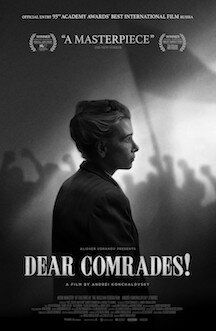Direction: Lee Daniels
Country: USA
Unfortunately, Lee Daniels’ new directorial effort, The United States vs. Billie Holiday, is not as captivating as it was the groundbreaking vocal style of the jazz diva that it brings front and center. Based on Johann Hari’s 2015 book Chasing the Scream: The First and Last Days of the War on Drugs, the film, set in the 1940's, dramatizes with fictional manipulation the continuous efforts by the Federal Bureau of Narcotics to imprison Billie Holiday, a long-time heroin addict. In response, the singer discomposes her persecutors every time she sings the forbidden "Strange Fruit", a tragic song that protests the lynching of Black Americans.
Daniels, who earned considerable attention in the past with Precious (2009) and The Butler (2013), decided to play gracefully but forgot to dig the emotional side deep enough. While the color-saturated Harlem atmospheres load the visuals with a stylized contemporary feel, the stuttering, episodic pace and disorganized structure stain a messy narrative that complicates what should be simple. The dissonant fictionalized romance between Holiday and the undercover FBN agent turned admirer, Jimmy Fletcher (Trevante Rhodes), doesn’t attenuate the predicaments found in Suzan-Lori Parks' plot, squandering one last opportunity to pull the story above average waters.
Despite the positive performance from R&B singer Andra Day in her first major role, the film tells Holiday’s story with the wrong notes. It’s disappointing when we think how fluid, resonant and evocative this biopic could have been if appropriately and honestly built.








































